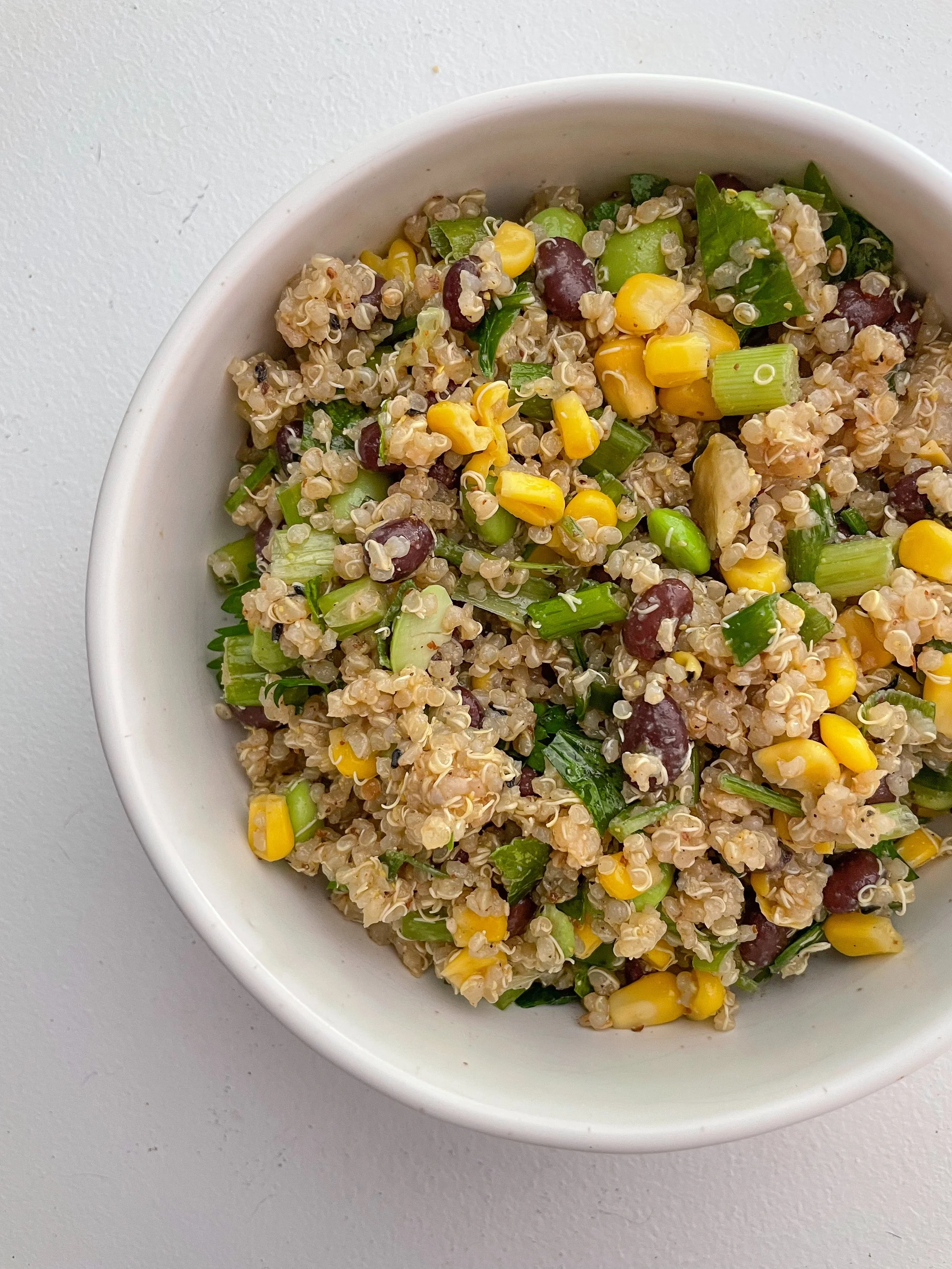Acid reflux and Heartburn Remedies

The Instagram poll results are in! You want to know more about heartburn. I actually got a message from a family member this morning asking what to do. I took it a sign from the universe that I should write the blog post. I’m into my 7th year consulting with 1:1 clients and heartburn is so common. Today, I’ll share reasons why it’s high, foods I often suggest avoiding and my favourite tips to help reduce that uncomfortable feeling. Send this to a friend in need so they can also protect their precious tissue in the esophagus from stomach acid.
acid reflux: a form of indigestion felt as a burning sensation in the chest, caused by acid regurgitation into the esophagus
The valve, lower esophageal sphincter (LES), isn’t closing properly and the contents from your stomach are coming back up the esophagus into the throat. The distinguishing factor between heartburn and gastroesophageal reflux disease (GERD) is that that burning sensation is chronic with GERD. It’s time to seek some help with a holistic practitioner to get to the root cause if you’ve been suffering for weeks or months.
Please note, you may have GERD without heartburn. Other sensations are pain in the chest, regurgitation, sore throat, coughing or feeling like food is stuck in your throat.
Causes of heartburn
pregnancy, I don’t think I got this because of my long torso ; )
low stomach acid, not high like most doctors suggest
dysbiosis, microbiome health
hiatal hernia
smoking
age (can link back to lower stomach acid as we age)
small intestinal bacterial overgrowth (SIBO)
side effect of medications
overeating
ulcer, speak to your doctor to rule out
If you lie down after a meal and feel worse, it’s time to alter your diet slightly.
Foods that may trigger heartburn & GERD
spicy food
peppermint
coffee
high fat foods, think fried foods or bacon and sausage
onions
dairy
carbonated beverages
alcohol
tomatoes
citrus foods
chocolate : (
Should I just take medication?
Proton pump inhibitors (PPI’s), antacids (rolaids, tums), and h-2 receptor blockers help, but they aren’t getting to the root cause of why you have low stomach acid or acid reflux. They also reduce your stomach acid further, which makes digestion and absorption of food even harder. Stomach acid is also required to help kill off any pathogens and unwanted bacteria. I always recommend working with a practitioner first to address lifestyle, diet, supplements and herbs before trying medication with undesirable side effects.
Looking for relief?
Always work with a practitioner as there can be contraindications with conditions or medications
DGL (deglycyrrhizinated licorice) to repair lining and promote mucous (avoid if you have high blood pressure)
inner leaf aloe helps as much as medication
chamomile tea is soothing
HCL or digestive bitters for digestion
apple cider vinegar, I see this helping clients in practice a lot. have it 10-15 minutes prior to a meal or first thing in the am. always dilute it water and you can use a straw if you’d like
marshmallow root or slippery elm (sustainably harvested) to soothe
ginger to reduce inflammation and support digestion as a prokinetic
Including high fibre foods (plants!) will help you stay full longer and prevent overeating
I’d love to hear if any one these have helped you.
My clients and I work together to determine why they have heartburn in the first place and use herbs, food and lifestyle tips to soothe on our healing journey. Reflux is a ping from the body asking you to listen. I love using the GI-MAP to uncover H. pylori, causes of low stomach acid and other gut health imbalances that lead to acid reflux.
If you’d like to work together, please head to services.

Your guide to everything you need to know about protein. How much protein you need, meals ideas, plant-protein foods and perimenopause.
As a gut health nutritionist, I give you practical tips, plant-based foods high in iron and a recipe. I also explore reasons why your ferritin may be low.
There are so many different types of magnesium, it’s overwhelming. Thanks to my work experience student, we have complied a chart and a description of each type so you can make an informed decision. Curious to learn your magnesium levels, book in for a hair mineral analysis test.
A week of gut health tips to get your microbiome thriving! Easy to incorporate with a focus on diversity and plants by Jordan Bruce, a holistic nutritionist.
There is so much misinformation about soy consumption. Read why this nutritionist, Jordan Bruce, recommend you eat soy food.
Great for period pain, inflammation, liver detoxification, gut health protocols and hormone balance
Everything you need to know about flax! Why you should include it in your diet and how to prepare
Want to include more plant protein for health reasons? Not sure where to start? Here’s 9 of my favourite plant protein sources and my thoughts on each one!
Paleo? Keto? Let’s stop these short term diets and move towards something more sustainable. My top 6 gut health tips to ease into 2024
Everything you need to know about the bacteria H. pylori and how to support it naturally
Let’s dive into how you can improve constipation, I’ve got a tip for you! Cover image thanks to the book, Gut.
Your nervous system impacts your IBS, digestion, hormones and mood! Read up about the vagus nerve with actionable tips you can take today.
1/10 are diagnosed with endometriosis and it often takes a decade to get a diagnosis. Learn the symptoms here in this blog post!
Read this list to ensure you’re supporting your hormones! Food is powerful and can impact our sex hormones.




























